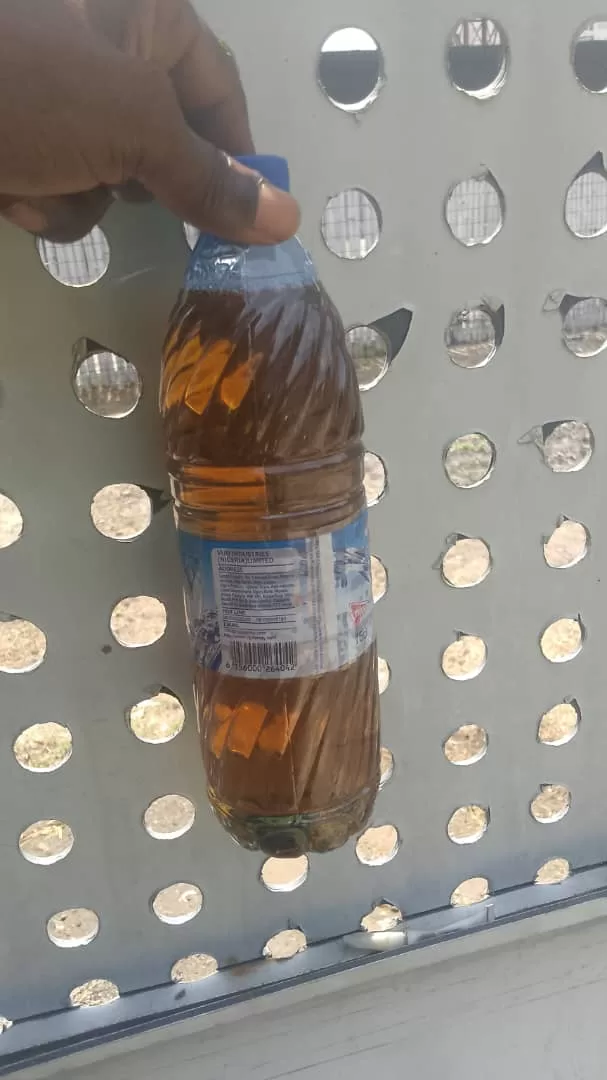Why Did My Water Suddenly Turn Brown After Short Storage Time?
If you’ve recently observed that your water has turned brown after a short storage time, you’re not alone. This alarming issue of water discoloration can be particularly concerning when you rely on clean water for drinking, cooking, and bathing. In this article, we will explore the common causes of brown water, focusing primarily on tannins in water as a significant culprit. We will also discuss the potential risks associated with iron contamination, well water issues, and plumbing problems. Additionally, we’ll provide practical water treatment solutions and tips for improving Lagos water quality. Whether you’re facing these challenges at home or are simply curious about the topic, this guide will help you understand and address the problem effectively.
Common Causes of Brown Water
1. Rust and Iron Contamination: Why Did My Water Suddenly Turn Brown After Short Storage Time?
One of the most prevalent causes of brown water is iron contamination due to rust sediment. This issue often arises from recent construction in your area, damaged well screens, or heavy rainfall, all of which can lead to water discoloration and cloudiness. Additionally, leaking plumbing, breaks, or old, rusty pipes in the main water line or your water heater can introduce rust and sediment into your water supply.
If your water returns to normal after running it for a few hours, the issue may resolve itself. However, if the discoloration persists, further investigation is needed to identify potential plumbing problems.
2. Tannins in Water: Another Reason Why Did My Water Suddenly Turn Brown After Short Storage Time?
Another common cause of brown water is the presence of tannins in water. If your water resembles tea or dark-colored urine rather than the clear liquid it should be, you may be dealing with tannins. These organic compounds are released from decomposing vegetation and can leach into surface water supplies and shallow wells, resulting in a brownish color and a bitter taste. This issue is particularly common around areas like Victoria Island, Ikoyi, and shallow boreholes near Lagos Bar Beach and Ahmadu Bello Way.
Can I Test My Water for Tannins?
Tannins create a light yellow to dark brown discoloration in water. In Lagos, they are mostly found in shallow boreholes around the lagoon areas, such as Victoria Island, Karimu Ikotun Street, Ahmadu Bello Way, and the Lekki area. A simple home test for tannins involves filling a clear water bottle with water and letting it sit overnight.
- If the color settles to the bottom of the bottle, the discoloration is likely caused by iron and/or manganese, not tannins.
- If the intensity of the color remains intact, it is most likely due to tannins.
If you suspect your water may contain tannins and wish to know the concentration, contact us here at RP Water Facilities.
The Problem with Filtering Tannins
Removing tannins from water can be challenging due to the variety of tannins present, which depend on local vegetation. While tannins are not harmful to health, they can make water aesthetically unpleasing and cause staining on fixtures and laundry.
Seek Professional Help
If you suspect tannin contamination, it’s crucial to consult a licensed plumber or water treatment specialist. They can conduct water tests and determine the best course of action to ensure your water quality is safe and clear.
Tannin Removal Solutions
If tannins are identified as the culprit behind your brown water, there are several effective methods for removal:
1. Ion Exchange Systems
Ion exchange systems are effective for removing tannins due to their slight negative charge. These systems utilize anion resins that attract negatively charged particles. The process works by exchanging negatively charged tannin ions for chloride ions, effectively filtering the water.
| Aspect | Hard Water | Soft Water | Anion Resin Use | Cation Resin Use |
|---|---|---|---|---|
| Definition | Water with high concentrations of calcium and magnesium. | Water with low concentrations of calcium and magnesium. | Utilizes organic scavenging anion exchange resin for tannin treatment. | Typically used for softening hard water by removing calcium and magnesium. |
| Sensitivity to Hardness | Anion resin is sensitive; effectiveness can be reduced. | Not sensitive; systems can operate effectively without pre-treatment. | Water softeners can extend the life of anion resin when hard water is present. | Essential for treating hard water to prevent scaling. |
| Pre-Treatment Requirement | Water softener recommended to enhance anion resin performance. | No pre-treatment needed due to generally soft water. | Pre-treatment with a water softener can improve tannin absorption. | Required to soften water before treatment. |
| Regeneration Needs | Anion resin systems should be regenerated with a saltwater solution periodically. | Regular regeneration may still be needed depending on usage and system design. | Regeneration is crucial for maintaining resin effectiveness. | Regeneration typically involves a salt solution to remove accumulated hardness. |
| Impact on Water Chemistry | Can change chloride, alkalinity, and sulfate levels; monitoring is advised. | Minimal impact on water chemistry; generally stable. | Requires monitoring of chloride, alkalinity, and sulfate levels post-installation. | Alters hardness levels but may not affect anion levels significantly. |
| Alternative Treatment Method | Oxidation and filtration can also remove tannins but are more complex than anion exchange. | Less reliance on alternative methods due to inherent softness. | Anion exchange is simpler and more effective for tannin removal. | Cation exchange is primarily for hardness removal rather than tannin treatment. |
2. Activated Carbon Filters
Activated carbon filters are another effective option for removing tannins. They can absorb tannins while also improving the taste and odor of your water, making it more palatable.
3. Reverse Osmosis
Reverse osmosis systems can effectively remove tannins, though they may require regular maintenance to prevent fouling. This method ensures that your water is not only clear but also safe for consumption.
4. Oxidation
Using oxidizing agents like chlorine and ozone can break down tannins. Following this treatment with activated carbon filtration can help remove any residual contaminants, ensuring your water quality is optimal.
In summary: Why Did My Water Suddenly Turn Brown After Short Storage Time?
Brown water can be a frustrating issue, but understanding its causes and solutions is key to regaining access to clean, clear water. Whether you are dealing with rust, tannins, or plumbing issues, prompt action is essential. For residents in Lagos and Nigeria, staying informed about your water quality and seeking professional assistance when needed can ensure that you maintain a safe and healthy water supply.



